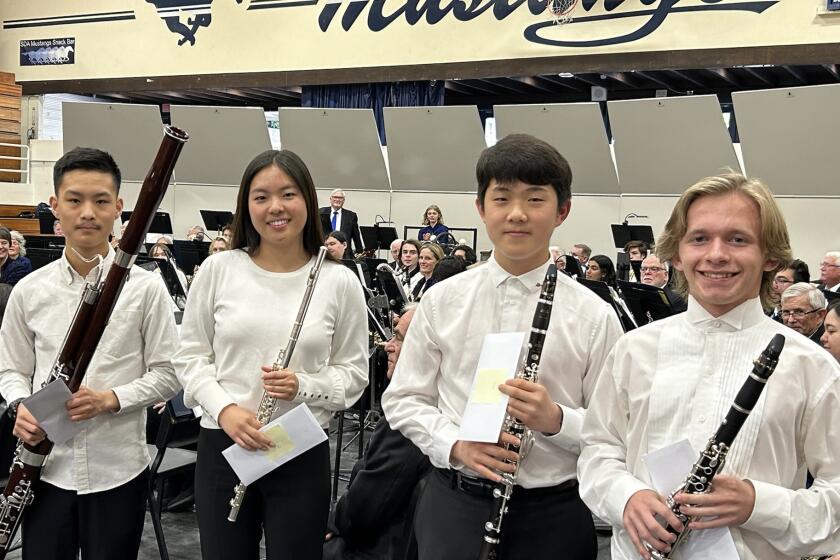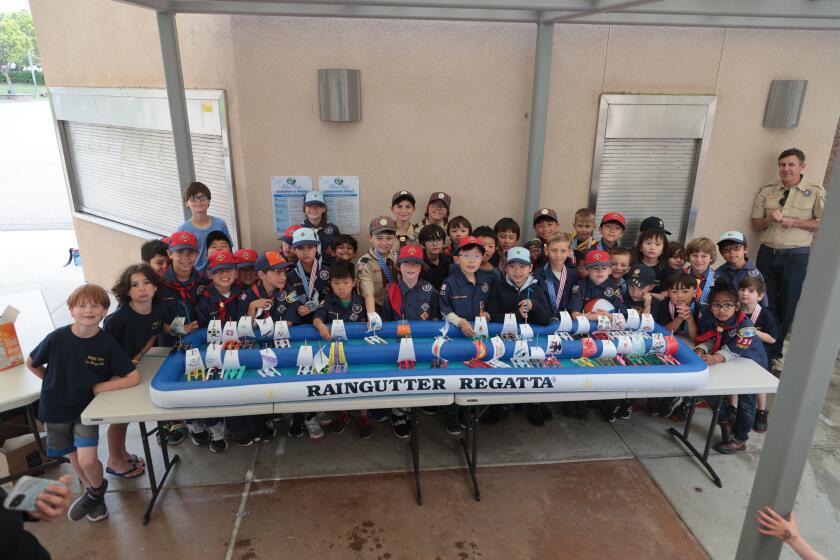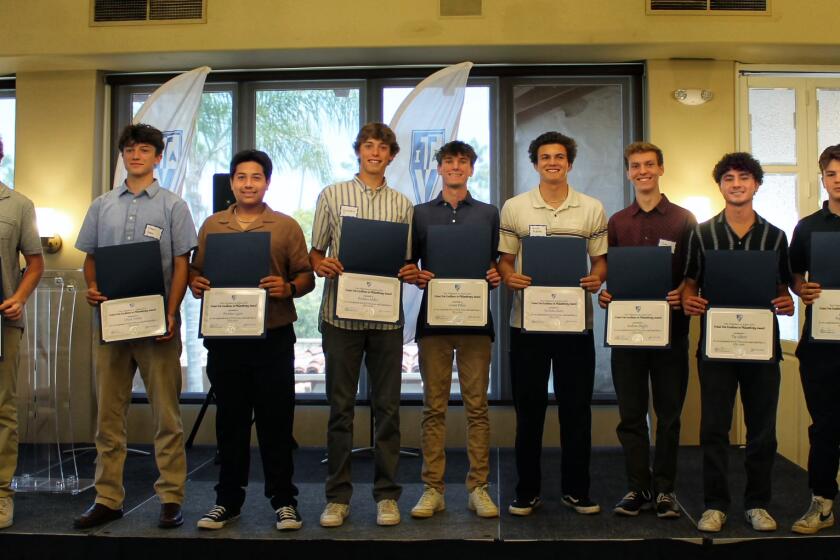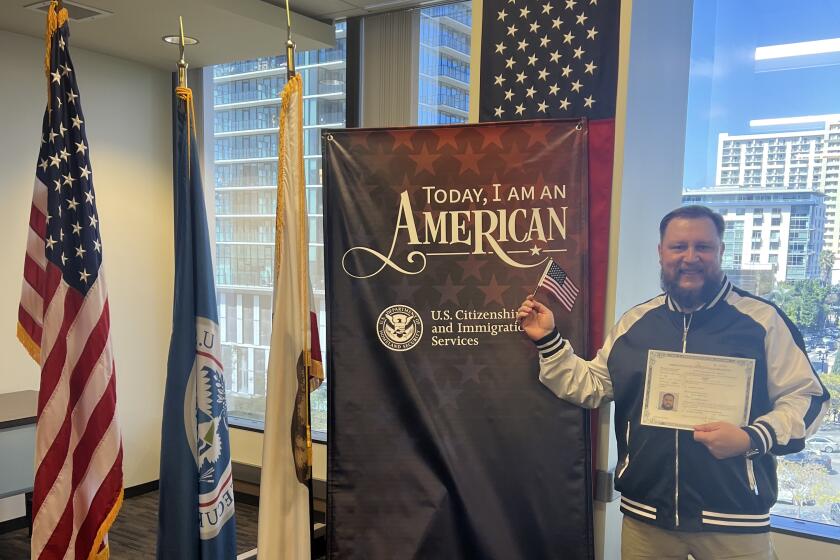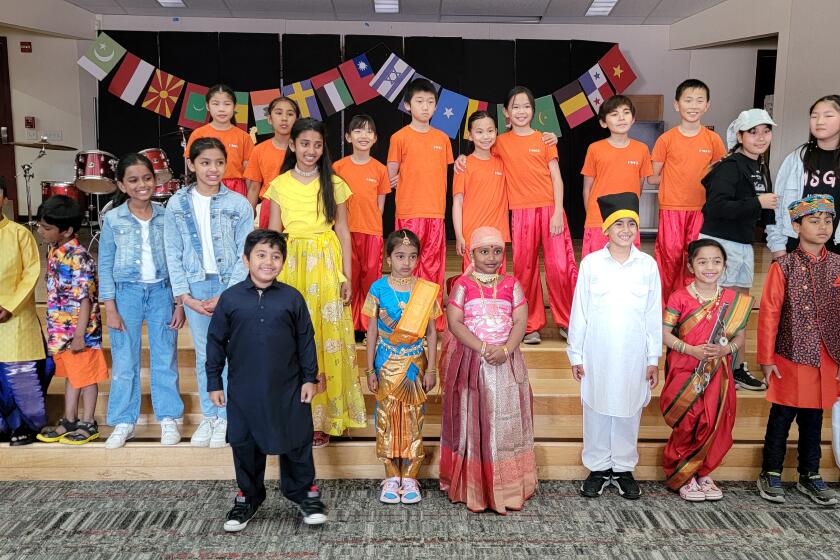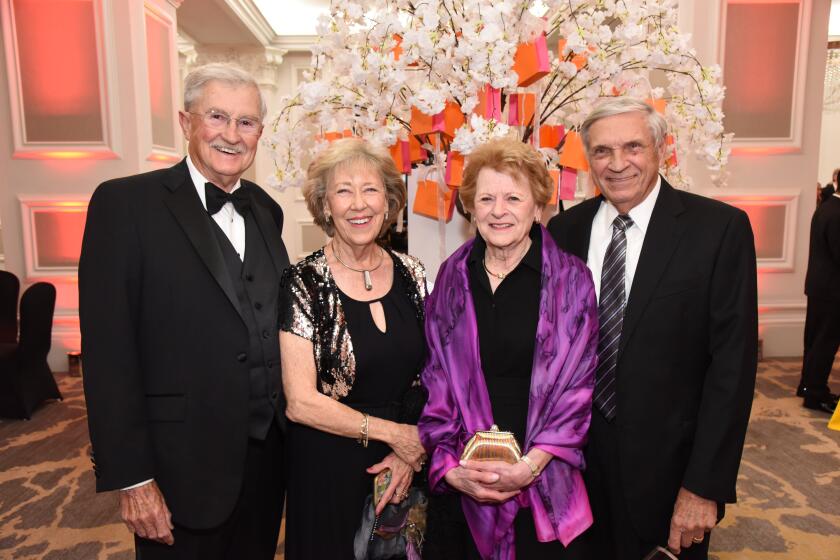Tiny hearts fuel Carmel Valley doctor’s huge compassion
Dr. Paul Grossfeld focuses much of his time and energy in caring for the tiniest of patients - babies with congenital heart defects.
Grossfeld, a Carmel Valley resident, wears two hats -- he’s a pediatric cardiologist at Rady Children’s Hospital, and a professor at UC San Diego Medical School, where he teaches and oversees a research laboratory.
An annual fundraiser - called “Little Hearts Big Hopes” - was held Sunday, May 21, at the home of Linda and Jeff Church in Rancho Santa Fe with the goal of raising about $250,000, enough money to keep Grossfeld’s research going for the next year.
Grossfeld’s lab at UCSD studies the genetic causes of congenital heart defects, to improve patient care and potentially prevent the conditions from developing. He oversees the work of two research scientists.
One area that Grossfeld is most interested in is a disease called Jacobsen syndrome, which is caused when part of the 11th chromosome is missing. Children born with the syndrome may suffer from intellectual disability, autism and a heart defect called hypoplastic left heart syndrome.
In patients with the heart syndrome, Grossfeld said, the left side of the heart does not develop properly, meaning it cannot adequately pump blood throughout the body. Patients either need a heart transplant, or a complex three-stage process to restructure the heart.
While Grossfeld said his lab, which collaborates with a number of other research institutions, receives some grant funding, the annual fundraising effort is crucial. “Philanthropy is large component of support for this kind of research,” he said.
For their part, the Church family, which has hosted the fundraiser for the past several years, doesn’t have a personal connection to someone with congenital heart defect. But they wholeheartedly support Grossfeld and his work, said Linda Church. Her family co-owns Suja, a San Diego-based juice company whose products are found in stores around the nation.
“I believe in research, and certainly medical research. He’s finding so much valuable information for so many different issues,” which relate not just to heart issues, but to such disorders as Alzheimer’s disease and autism. “It helps humanity in general. That’s why we support it.”
Over the years, Grossfeld has found support from Hollywood as well as Rancho Santa Fe. Last year, the fundraising event was held at the Grammy Museum in Los Angeles and, in previous years, at the set of the hit television sitcom “How I Met Your Mother,” Grossfeld said.
Grossfeld met the show’s co-creator, Craig Thomas, after Thomas’ son was diagnosed with Jacobsen syndrome.
At this year’s fundraiser at the Church home, one of the featured attractions was a performance by Ethan Bortnick, a pianist and musical prodigy who has already won wide renown despite his young age of 15. Ethan’s younger brother, Nathan, was born with hypoplastic left heart syndrome, said Grossfeld.
Among Grossfeld’s own philanthropic work is a series of missions to a children’s hospital in Siem Reap, Cambodia, organized by his wife, Susan, which have provided heart surgeries to 150 young patients over the past decade.
Research into congenital heart defects is making progress, Grossfeld said. Just within the past year, colleagues at Georgia Tech have isolated a gene in frogs, which, when deactivated, causes hypoplastic left heart syndrome. The discovery may lead to interventions which can prevent the defect from occurring, he said. “The importance of that, if we’re right, will be huge for this field.”
And with cuts proposed to the National Institutes of Health, which funds research grants, individual giving is needed to support vital research.
“I hope that through the fundraiser and (media coverage) it will raise more awareness and support,” Grossfeld said. “We can’t do it without philanthropy, that’s the bottom line.”
Church said she and her family began hosting Grossfeld’s annual fundraisers out of a desire to support his vital research. But the connections with Grossfeld and his colleagues proved invaluable when her own son was later diagnosed with a heart condition that caused a rapid heartbeat.
“I think a lot of people feel if they’re not affected by a certain issue, it’s not important for them to give,” said Church. “But when you give, you are receiving so much more in return.”
For more information, email Grossfeld at pgrossfeld@ucsd.edu or visit www.littleheartsbighopes.org.
Get the Del Mar Times in your inbox
Top stories from Carmel Valley, Del Mar and Solana Beach every Friday for free.
You may occasionally receive promotional content from the Del Mar Times.
